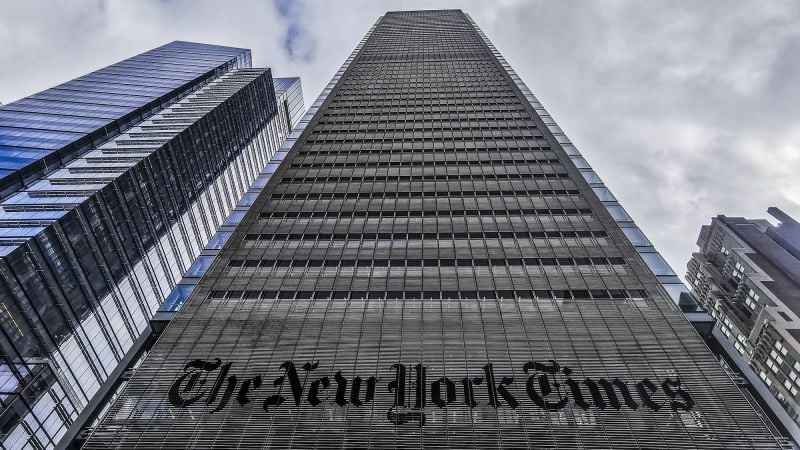The New York Times sues OpenAI and Microsoft for copyright infringement::The New York Times has sued OpenAI and Microsoft for copyright infringement, alleging that the companies’ artificial intelligence technology illegally copied millions of Times articles to train ChatGPT and other services to provide people with information – technology that now competes with the Times.



Honestly this can be easily overstated in the case of social media relative to anything else humanity does. But and large no one knows anything and is happy talking and speculating as they do. It was true before social media and it will be after.
The fun part is trying to make sense of it all, thus why I said “interesting”.
I personally have thought the copyright dimension one of the more interesting aspects of AI in the short and medium term and have thought so for years. Happy to hear takes and opinions on the issue, especially as I’m not plugged into the space any more.
If you want an interesting take from a source that understands both the tech and legal sides for real and not just pretend, see this from the EFF:
https://www.eff.org/deeplinks/2023/04/how-we-think-about-copyright-and-ai-art-0
It’s about the diffusion art models and not LLMs, but most of its points still apply (even the point about a stronger case regarding outputs by plaintiffs whose works can be reproduced, such as in this case).
Cheers!
My immediate reaction to the piece is that insofar as it’s trying to predict the path that the courts will take, the author may be too close to the tech while I can imagine judges readily opting to eschew what they’d feel would be excessive technical details in their reasoning. I’m curious to see how true that is.
For me the essential point, made at the end, is what do creators really want from copyright apart from more money … because any infringement case against AI easily spells oppressive copyright law.
I’m curious to see if a dynamic factor in this is how the courts conceive of what the AI actually is and does. The one byte per work argument may come off as naive for instance and lead a judge construct their own model of what’s happening.
Otherwise, the purposes of this thread and the take I posted from mastodon, I’d say the question of whether AI creates copyrightable works and how the broader industries respond to that and what’s legally required of them stands as fundamental in the medium term.
Now curious to see what legal scholarship is predicting, which in some cases probably a better predictor.